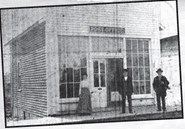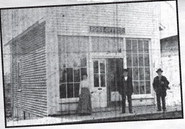Striking a Chord… ….


Striking a
Chord...
Education trends provide opportunity for reflection
by Valorie Brecht, TRG editor
Happy Wednesday! Although it’s a little after Veterans Day, I wanted to take this opportunity to say thanks to all the veterans out there for your service. As Chris Pettis mentioned during the program at The Highground Monday, sacrifice can take on many different forms. Every veteran has had to sacrifice something for our country, whether it’s putting the next phase of their life on hold, like career, marriage or starting a family; losing out on time with loved ones or missing important life milestones; or having to forego the comforts of home. Thank you, veterans, for making those sacrifices, for stepping up to protect and defend. It is because of your actions that we can enjoy living in what it is still the freest country in the world. - More churches are starting Christian schools, and enrollment in these schools is growing, a recent Associated Press report found.
Conservative Christian schools accounted for nearly 12% (3,549) of the country’s private options during the 2021-22 academic year, according to the latest data from the National Center for Education Statistics’ Private School Universe Survey. Enrollment in conservative Christian schools increased by about 15% (785,440) in 2021 compared to 2019.
In addition, the American Association of Christian Schools is seeing school growth, especially from Southern Baptist churches. The group represents about 2,200 U.S. schools. This summer, the association said it had 17 churches in its emerging schools program.
More broadly speaking, private school enrollment has been increasing since the pandemic. From 2019 to 2020, private school enrollment grew by 3.4%, and from 2020 to 2021, it grew by 5.9%. In 2021, 4.7 million students were enrolled in private schools, which was 5% higher than in 2011. In contrast, public school enrollment has declined. From 2019 to 2020, public school enrollment dropped by 1.1%, and from 2020 to 2021, it dropped by 0.7%.
All of these statistics go to show that parents are looking for more options when it comes to education, and they want teachers to have the freedom to inculcate strong, faith-based values in their children. As Joseph Backholm notes in an article for The Washington Stand, it’s a lot easier to have an impact on children’s lives in the 16,000 hours they spend in the classroom between kindergarten and sixth grade, compared to the maybe three hours a week they get between Sunday school and mid-week programming. It’s an opportunity to teach truth and counteract the many lies of social media, the entertainment industry and the culture as a whole, which is trying to tell kids who and what they should be.
The rapid growth in private school enrollment since the pandemic is also a response to how the pandemic was handled, with private schools reopening more quickly and not being required to enforce heavy-handed, top-down regulations such as masking and quarantines which proved detrimental to students.
During the pandemic, parents also had an inside look at what their kids were being taught while they were learning from home, and some parents were not happy with what they found out, prompting them to look at other options. The demand for church-affiliated schools has grown as public schools have fallen under increased scrutiny for what they are teaching about gender, sexuality and other contentious issues, writes Holly Meyer for the AP.
In addition, several states such as Arizona, Florida, West Virginia and Ohio have passed voucher laws in recent years, allowing taxpayer dollars to go towards private school tuition, making it easier for private schools to start up and sustain operations.
So, what does this all mean? It means the world of education is changing, likely for the better. More options is always a good thing. Competition in the marketplace helps to drive companies to produce the best product, and it’s the same principle with the education system. Schools should be striving to provide the best education possible.
Education is not a cookie cutter, one-size-fits-all thing. Some kids enjoy working in a group setting; some do not. Some are visual, auditory or kinesthetic learners, or a combination of all three. Some like a quiet study environment; others like background noise. What works for one kid might not work for another. I’ve known of homeschoolers who were very skeptical of public school until their kid tried a few electives, ended up really liking it and eventually went to public school full-time. I’ve heard of parents whose kids enjoyed online school during the pandemic because they excelled working independently and could get through their classwork much faster, leaving more time for hobbies or a part-time job.
My point is, whether it’s public school, private school or homeschooling, it’s about creating the environment where the child can best learn and grow, and have the opportunity to pursue those interests or natural bents that could lead to a career someday.
Some proponents of school choice would make the public school system out to be the enemy, but that’s foolish. There are great public schools out there and there are not so great ones, like anything else. There are great teachers and there are poor teachers. It all depends on the individual school. Much of a school’s success or failure can be traced back to the school leaders: their own morals and values, their vision for the school, and how well they support the teachers and other staff who are the “boots on the ground.”
I don’t blame parents for being concerned about what ideologies or values their students are being taught in school. After all, parents are the protectors and first educators of their children. They should take an active role in their children’s education. That’s where it’s helpful to have a relationship with the school staff to stay aware of what your student is learning. Open communication and transparency can go a long way.
Parents, teachers, administrators and the community as a whole all need to work together to achieve the best outcomes for students.






